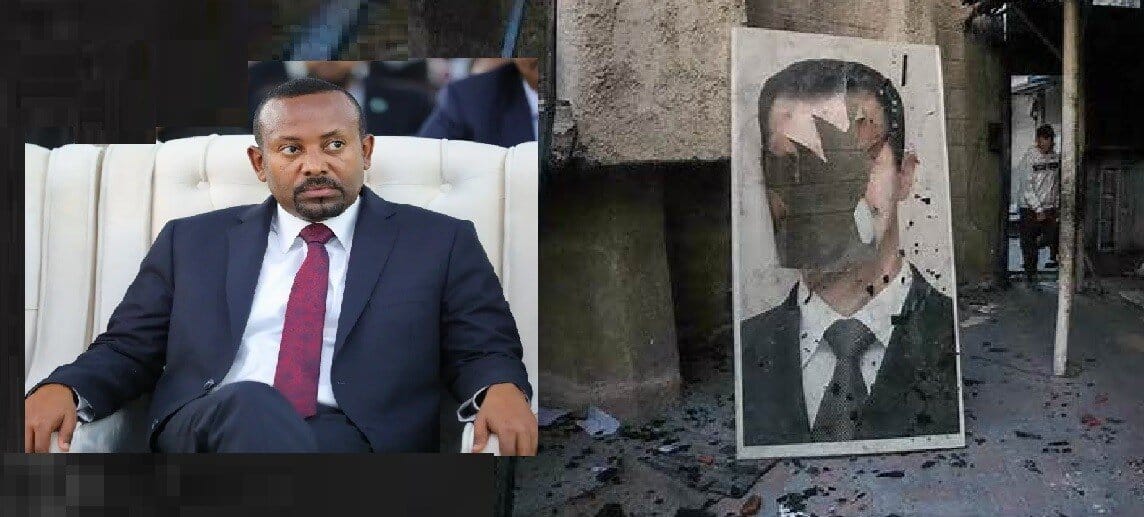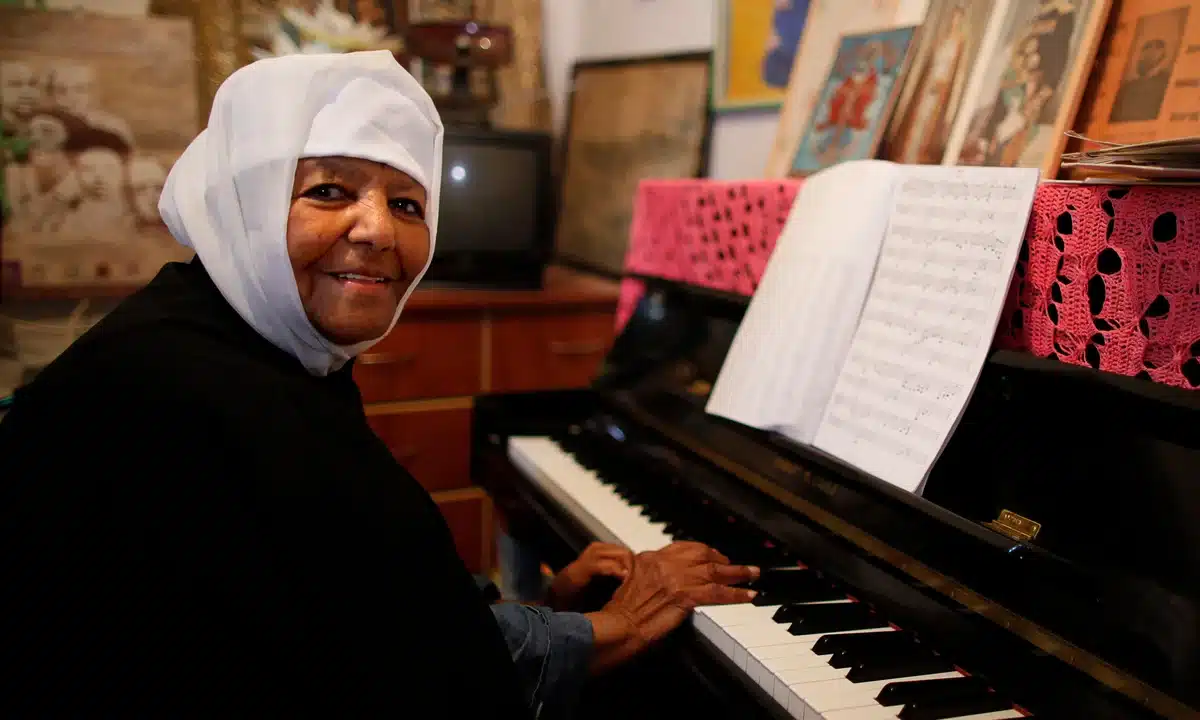By Prof. Alemayehu G Mariam
October is international Breast Cancer Awareness month. Throughout the month, public and private organizations in many countries promote programs and activities aimed at breast cancer risk reduction, early detection, treatment and research. It is well-established that breast cancer is one of the most common cancers affecting women throughout the world. Millions of women are diagnosed with the disease every year and hundreds of thousands die needlessly. Breast cancer is the second leading cause of death among African American women in the U.S., according to the Komen for the Cure organization. There is little reliable data on the incidence and prevalence of breast cancer in Africa because of the absence of reporting, diagnostic and treatment processes. Breast cancer cases in Africa are likely to be documented only when patients come to hospitals, health centers, clinics and laboratories for diagnostic and treatment services. Facilities with mandatory reporting requirements are far and few between in the rural areas of Africa where the vast majority of women live. Few African governments have undertaken breast cancer epidemiological surveys to reliably ascertain the incidence, severity and prevalence of the disease.
Breast Cancer and Health Services in Ethiopia
A review of the academic and popular literature does not show that breast cancer is a priority for health officials in Ethiopia. That is understandable, though not excusable, given the country’s dismal health infrastructure and services. The statistics on health care services in Ethiopia are grim and heartbreaking. According to a 2006 World Health Organization (WHO) report, Ethiopia’s population was estimated to be 77 million. To serve this population, there were 1,936 physicians (1 doctor for 39,772 persons); 93 dentists (1: 828,000); 15,544 nurses and midwives (1: 4,985), 1,343 pharmacists (1: 57,334) and 18,652 community health workers (1: 4,128). Total expenditure on health as a percentage of gross domestic product was 5.9 per cent. General government expenditure on health as a percentage of total expenditure on health was 58.4 per cent, and private expenditures covered the balance of 41.6 percent. Hospital beds per 10,000 population was less than 25. Per capita expenditure on health was US$ 3 at an average exchange rate. WHO’s minimum standard is 20 physicians per 100,000 population, and 100 nurses per 100,000 population. In March 2007, the late Meles Zenawi, responding to a question on the Ethiopian “doctor drain”, shocked health officials and physicians attending a conference by declaring, “We don’t need doctors in Ethiopia… Let the doctors leave for wherever they want. They should get no special treatment.” According to Foreign Policy magazine, “there are more Ethiopian physicians practicing in Chicago today than in all of Ethiopia, a country of 80 million and Africa’s second-most populous country.”
In October 2010, in a five-part series entitled, “Mothers of Ethiopia,”investigative journalist Hanna Ingber Win painted a portrait of a country that is the epicenter — the ground zero– of Africa’s maternal and child health crises. Win wrote, “In Ethiopia, the maternal health statistics suggest that the nation’s health care system needs an overhaul. Less than six percent of women have access to a health professional while giving birth, according to Ethiopia’s 2005 Demographic and Health Survey. The maternal mortality rate is one of the worst in the world. For every 100,000 live births, 673 women die giving birth, according to the survey.”
In light of these statistics and the absence of private and non-governmental organizational efforts to increase breast cancer awareness, little is factually known about the incidence, severity and prevalence of breast cancer in Ethiopia. Routine mammogram screening for breast cancer for the vast majority of Ethiopian women is unheard of and certainly unaffordable. When the disease manifests itself, the vast majority of Ethiopian women are likely to seek the aid of herbalists and shamans for traditional medicine. Chemo and radiotherapy are beyond the means of all except the extremely well-to-do who will often travel outside the country to receive treatment.
The Culture of Secrecy and Silence About Cancer, HIV/AIDS…
There is a strange and confounding culture of secrecy and silence about certain kinds of illnesses among many Ethiopians in the country and those in the Diaspora. Among the two taboo diseases are cancer and HIV/AIDS. The rule seems to be hide the illness until death, even after death. We saw this regrettable practice in the recent passing of Meles Zenawi. Meles’ illness and cause of death remain a closely guarded state secret. It is widely believed that he died from brain cancer. The New York Times quoting “Western officials” reported Meles was “was suffering from liver cancer.” The Committee to Protect Journalists reported Meles died in a Brussels hospital of liver cancer. But cancer in general and breast cancer in particular are taboo subjects for most Ethiopians including those with advanced education and exposure to the outside world. This culture of secrecy and silence has contributed significantly to the needles deaths of thousands of Ethiopians. For instance, there is substantial anecdotal evidence that far too many Ethiopian women living in the U.S. have needlessly died from breast cancer because they failed or avoided to get regular breast cancer screening fearing a positive diagnosis. Often these women would keep themselves in denial about the disease and avoid sharing information with family and friends until they have passed a critical stage where medical intervention is ineffective. Secrecy and silence when it comes to breast cancer is a death warrant!
Developing a Culture of Openness and Free Exchange on Breast Cancer and Other Illnesses
I became very much aware of breast cancer several years ago. Until the disease hit closer to home, I knew very little about its diagnosis, treatment and outcomes. But I did learn a lot; and here are some of the things I learned:
…With the types of treatments available today, breast cancer is a disease that can be treated effectively if caught early… It is a woman’s worst nightmare to be told that she has breast cancer. [Women] go through an emotional roller coaster — shock, denial, anger, and “why me” self-pity when the doctor [tells them they have] breast cancer…. Many Ethiopian women in the U.S. tend to be lax about doing [their] annual checkups or having our regular mammograms. For some of [them], it is a simple problem of not being able to afford any health care. Without insurance, getting health care in the U.S. could be very difficult. But many Ethiopian women who have the means to get regular checkups and mammograms often do not get it. [There are] many reasons for this potentially dangerous situation… one of the major reasons has to do with not being well-informed about breast cancer. Many [Ethiopian women] are so scared of the disease that [they] don’t want to think about it, let alone actively learn information that could save [their] lives…. They will not go to see the doctor unless they are ‘very sick’. With breast cancer, waiting until one is ‘very sick’ means one is just too late to get help to save one’s life…
… Breast cancer is one disease that no woman can hide from or afford to ignore. Ignoring breast cancer is like ignoring a small brushfire in the forest. Left alone, the brush fire will eventually destroy the forest. Breast cancer, if not detected early or ignored after one catches its tell-tale signs, could spread to various organs in the body and kill its victim. It is not uncommon for some women to feel lumps in their breasts, ignore it and not have it checked out because it “does not hurt.” That is a big mistake. Any kind of lump or hard tissue in the breast should be taken very seriously and checked out by a doctor…
These words were written by my wife two years ago almost to the day in a piece entitled, “A Letter to My Ethiopian Sisters”. She beat breast cancer and freely shared her story with her Ethiopian sisters. She explained that the “myths many Ethiopian women believe about breast cancer tests and treatments [are just that]. For example, some [Ethiopian] women avoid getting their annual mammograms because they believe they can get cancer from it. Mammogram does not cause breast cancer. It is a simple and painless procedure just like taking X-rays.” She addressed the fact that “some Ethiopian women believe cancer is something to be ashamed of. They don’t want their friends and relatives to know they have it and keep it a secret to themselves until it is too late or they are in the hospital. There is nothing shameful about breast cancer. It is a terrible disease that does not discriminate between women who are poor or rich, black or white or in whatever part of the world a woman may live in.”
She stressed essential facts that Ethiopian women should understand about the disease: “What I want to stress here more than anything else is the fact that Ethiopian women need to do regular medical checkups and get mammograms to catch any symptoms or signs of breast cancer. Breast cancer is not like the flu, it does not go away with a few days of bed rest. If left untreated, it gets worse by the day until it reaches a point where nothing can be done medically. Early detection of breast cancer is the key to survival.” She regretted the fact that because “Ethiopian women simply avoid doing the basic things that could help catch the disease at its early stage, over the years [she has] lost friends, acquaintances, co-workers and family members to this terrible disease. I have to say many lost their lives because they did not have timely breast cancer screening and diagnosis, or ignored their symptoms until after it was too late.”
Ethiopian Women Breast Cancer Awareness Month: A “Letter” to My Ethiopian Brothers
In her “Letter”, my wife insisted on the need for open discussion and community action in fighting breast cancer among Ethiopian women.
I know for many Ethiopian women in the U.S. there are cultural, language and financial issues that make it difficult to get regular checkups and screenings for breast cancer. I believe Ethiopian women helping each other could help greatly in dealing with these issues. That is why I ask all of my Ethiopian sisters to openly talk about breast cancer with each other at home, in places of worship and social events and gatherings and share information about early breast cancer detection and treatment. As we freely talk about our high blood pressure or diabetes, we should do the same with breast cancer so that we can get help in a timely fashion.
She called on “Ethiopian women doctors especially [to] play an important role in educating women about the disease, doing screenings and suggesting possibilities for those who may not be able to afford health care. There are many local clinics and hospitals in the U.S. that offer free breast cancer screenings for women who cannot afford it.” She hoped, “Ethiopian women could start breast cancer patient support groups in their local communities throughout the U.S. that can provide information and one-to-one support for those diagnosed with breast cancer or going through treatment.” She pleaded with “those in the religious community [to] play an important role by inviting knowledgeable health professionals in breast cancer to their community halls to educate Ethiopian women on how to access free or low cost health care to get checkups and mammograms.” She urged, “In many major cities, there are radio stations serving the Ethiopian community. They could help save many lives if they devoted some air time to breast cancer awareness and treatment. The same can be said of the various Ethiopian websites. I am hopeful that by next year this time, we will be able to have our first annual “Ethiopian Women Breast Cancer Awareness Month” to coincide with the national program.”
We believe it is important to share such information during this month of awareness for two reasons. First, it is important to chip away away at the deadly culture of secrecy and silence about cancer. Perhaps others may feel empowered to share their stories with the disease and spark broad conversation throughout Ethiopian communities worldwide. The best way to beat breast cancer is to be adequately informed about the disease and take prompt preventive and preemptive action. Second, we wanted to reassure our Ethiopian sisters and brothers that there is nothing shameful, immoral, wrong or scandalous about being a victim of breast cancer or any other cancer. But it is shameful, immoral, wrong and inexcusable to live in a country where services are available for early detection, diagnosis and treatment and not take advantage of them because of a misguided feeling of shame or fear of ostracism.
The fact of the matter is that there is extraordinary heroism in being a breast cancer survivor, or for that matter any other type of cancer. I believe the victory of women who have defeated breast cancer is no less than the victory of the valorous soldiers who have earned the Medal of Honor for fighting and defeating the enemy in the field of battle. That is because I have seen the courage, fortitude, stamina, bravery, endurance, determination and perseverance of those women who have fought and won over breast cancer. I have also seen the suffering, anguish, hardship, misery and torment of those heroines who lost their battles.
I believe Ethiopian men could make a special contribution to breast cancer awareness, early detection and treatment by undertaking some simple tasks. First, we should strive to educate ourselves on this deadly disease. Many of our mothers, sisters, wives and loved ones are so fearful of the disease that they will not seek out information or preventive care until it is too late. It should be our moral duty to insist and relentlessly remind them to get regular mammograms and checkups, particularly where they are available and affordable. It is inexcusable and immoral not to take advantage of such preventive services in countries where such services are available regardless of income. We should help out by organizing special outreach efforts for Ethiopian women during breast cancer awareness month and National Mammogram Day (third Friday in October). Various activities including walks and other charity events are organized to raise awareness and funds for breast cancer. We should make a special effort to participate in these events and mobilize the community in places where there are large concentrations of Ethiopians. It is not uncommon for Ethiopian women to suffer this deadly disease in quiet desperation. Support groups are especially needed to help those fighting breast cancer. We can play a central role in helping to create such groups. Information on locally available breast cancer resources (free mammogram services, public and private programs providing treatment) should be systematically gathered and readily made available to Ethiopian women, particularly in urban areas. Above all, Ethiopian men share the greatest responsibility in eradicating the ugly culture of secrecy and silence surrounding breast cancer by freely talking about it in all public forums and private settings.
This month, let us take time to salute our sisters who have prevailed over breast cancer. There are no greater heroines than breast cancer survivors. Let us also remember the sisters we have lost needlessly to breast cancer. Let us resolve to fight breast cancer through a massive community program of awareness, information and education. Routine checkups and early detection are the best weapons against breast cancer. Let’s join hands and defeat breast cancer one woman at a time!
“S/he who does not tell of his/her illness cannot expect to get the right medicine/cure.” Ethiopian proverb.















